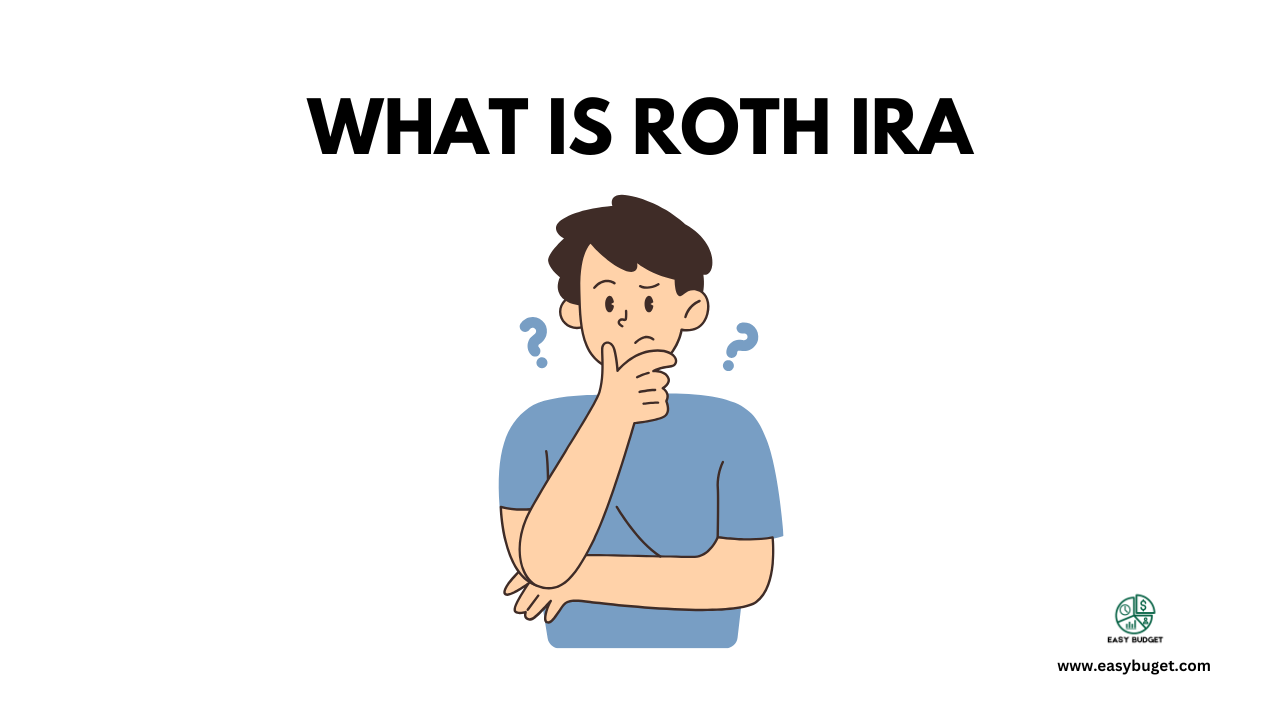Introduction
Planning for retirement is one of the most important financial goals for anyone. Among the various options available, a roth ira stands out for its unique tax advantages and flexibility. But what exactly is a roth ira, and why should it be part of your retirement strategy? In this guide, we’ll explain everything you need to know about roth ira, from how they work to the best providers and advanced strategies to maximize your savings.
What is a roth ira?
A roth ira (Individual Retirement Account) is a retirement savings account that allows your money to grow tax-free. Unlike a traditional IRA, where contributions are tax-deductible, roth ira contributions are made with after-tax dollars. The primary advantage is that your withdrawals in retirement—including earnings—are entirely tax-free if certain conditions are met.
Key features:
- Contributions grow tax-free, meaning you won’t owe taxes on the account’s growth over time.
- Withdrawals are tax-free if you’re 59½ or older and have held the account for at least five years. This makes it an excellent tool for tax-free income during retirement.
- No required minimum distributions (RMDs) during your lifetime, allowing you to let your investments grow as long as you want.
Eligibility: To contribute to a roth ira in 2025, your modified adjusted gross income (magi) must be below $153,000 for single filers or $228,000 for married couples filling jointly. Contribution limits are $6,500 annually, with an additional $1,000 allowed for those aged 50 and older.
Benefits of a roth ira
- Tax-free growth and withdrawals: Unlike a traditional ira, where you pay taxes on withdrawals, a roth ira offers tax-free income in retirement. This can be a significant advantage if you expect your tax rate to be higher in the future. Additionally, tax-free growth can lead to substantial savings over decades of compound interest.
- Flexibility: You can withdraw your contributions (but not earnings) at any time without penalty. This makes a roth ira a flexible option for unexpected expenses like medical bills, home repairs or educational costs, providing peace of mind.
- No RMDs: Unlike traditional iras, roth ira do not require you to start taking distributions at age 73. This allows your investments to grow longer and offers more control over your retirement income.
- Estate planning benefits: Roth IRAs can be passed down to heirs tax-free, making them a valuable estate planning tool. Beneficiaries can enjoy tax-free distributions, maximizing the legacy you leave behind.

How to open a roth ira?
Opening a roth ira is simple. Here’s how to get started:
- Choose a provider: Popular providers include Charles Schwab, Fidelity, Vanguard, E*TRADE and T. Rowe Price. Each offers different features, fees and investment options. Research their platforms to find one that suits your investment style, such as active trading or hands-off index investing.
- Meet the requirements: Ensure your income falls within the eligibility limits. For high-income earners, strategies like the backdoor roth ira (explained below) might be necessary. Remember, exceeding the income limits can result in penalties if not properly managed.
- Fund your account: Decide how much to contribute based on your financial goals. The contribution limit for 2025 is $6,500, or $7,500 if you’re 50 or older. Consider setting up automatic contributions to stay consistent.
- Select investments: Choose a mix of stocks, bonds, ETFs, or mutual funds based on your risk tolerance and retirement timeline. Diversifying your investments can help manage risk and increase potential returns.
Types of roth ira
- Custodial roth ira: Designed for minors, this account allows parents or guardians to help children start saving early. Contributions are limited to the child’s earned income and the account offers decades of tax-free growth potential.
- Self directed roth ira: Offers the flexibility to invest in alternative assets like real estate, precious metals or cryptocurrency. This type of account requires more oversight and is suitable for experienced investors seeking diversification.
- Traditional vs. roth ira: While traditional iras offer immediate tax benefits, roth ira provide long-term tax advantages. Evaluate your current and future tax situation to decide. For instance, younger individuals with lower incomes might benefit more from roth ira due to their lower current tax bracket.
Advanced roth ira strategies
- Roth conversion: If you expect your tax rate to rise, converting a traditional IRA to a Roth IRA might make sense. This involves paying taxes now to enjoy tax-free growth later. Consider spreading conversions over multiple years to minimize the tax impact.
- Backdoor roth ira: A strategy for high-income earners who exceed contribution limits. It involves contributing to a traditional IRA and then converting it to a Roth IRA. Ensure you’re aware of the pro-rata rule to avoid unexpected tax liabilities.
- Rollover 401(k) to roth ira: If you’re leaving a job, rolling over your 401(k) to a roth ira can consolidate your retirement accounts and provide tax-free growth. Be aware of the tax implications of rolling over pre-tax funds.
Best roth ira providers in 2025
- Charles Schwab roth ira: Offers no account minimums, extensive investment options, and excellent customer service. Schwab’s robust research tools and educational resources make it ideal for new and experienced investors alike.
- Fidelity roth ira: Known for zero fees on many accounts and robust investment tools. Fidelity also offers a mobile app that’s highly rated for its user-friendly interface and comprehensive features.
- Vanguard roth ira: Ideal for low-cost index funds and long-term investors. Vanguard’s focus on low fees ensures more of your money goes toward growing your savings.
- T. Rowe Price roth ira: Great for hands-on investors with access to a wide range of mutual funds. T. Rowe Price also provides personalized retirement planning tools.
- E*TRADE roth ira: Perfect for active traders with a variety of investment options. E*TRADE’s platform is particularly appealing to those who want to trade frequently.
- USAA roth ira: Tailored for military families, offering unique benefits and services, including dedicated support and military-specific financial resources.
Comparing roth iras and other accounts
- Traditional IRA vs. Roth IRA: Traditional IRAs offer upfront tax deductions, while roth iras provide tax-free withdrawals. Choose based on your current and future tax situation. Traditional IRAs may be better for those seeking immediate tax relief.
- Simple IRA vs. Roth IRA: Simple IRAs are employer-sponsored and have higher contribution limits, but they lack the tax-free growth of Roth IRAs. They are better suited for small business employees or owners.
- 401(k) vs. Roth IRA: 401(k)s often include employer matching, making them a priority. However, Roth IRAs provide more flexibility, no RMDs and tax-free growth, making them an excellent supplement to a 401(k).
Common mistakes to avoid
- Exceeding contribution limits: Contributing beyond the annual limit can result in penalties. Keep track of your contributions and adjust if needed.
- Ignoring income limits: If your income exceeds the threshold, consider strategies like the backdoor Roth IRA. Be cautious and consult a financial advisor to avoid errors.
- Not understanding withdrawal rules: Early withdrawals of earnings can result in taxes and penalties. Familiarize yourself with the five-year rule and other conditions to avoid surprises.
Conclusion
A Roth IRA is a powerful tool for building a tax-free retirement. With benefits like tax-free growth, no RMDs, and flexibility, it’s a versatile option for a variety of financial goals. Whether you’re a young professional or nearing retirement, understanding and utilizing Roth IRAs can significantly enhance your financial future.
Ready to start your Roth IRA journey? Explore providers like Fidelity, Charles Schwab, or Vanguard today and secure your path to a comfortable, tax-free retirement. Share your questions or experiences with Roth IRAs in the comments below!
Please subscribe Easy Budget to stay updated about our latest blogs!


Great article.